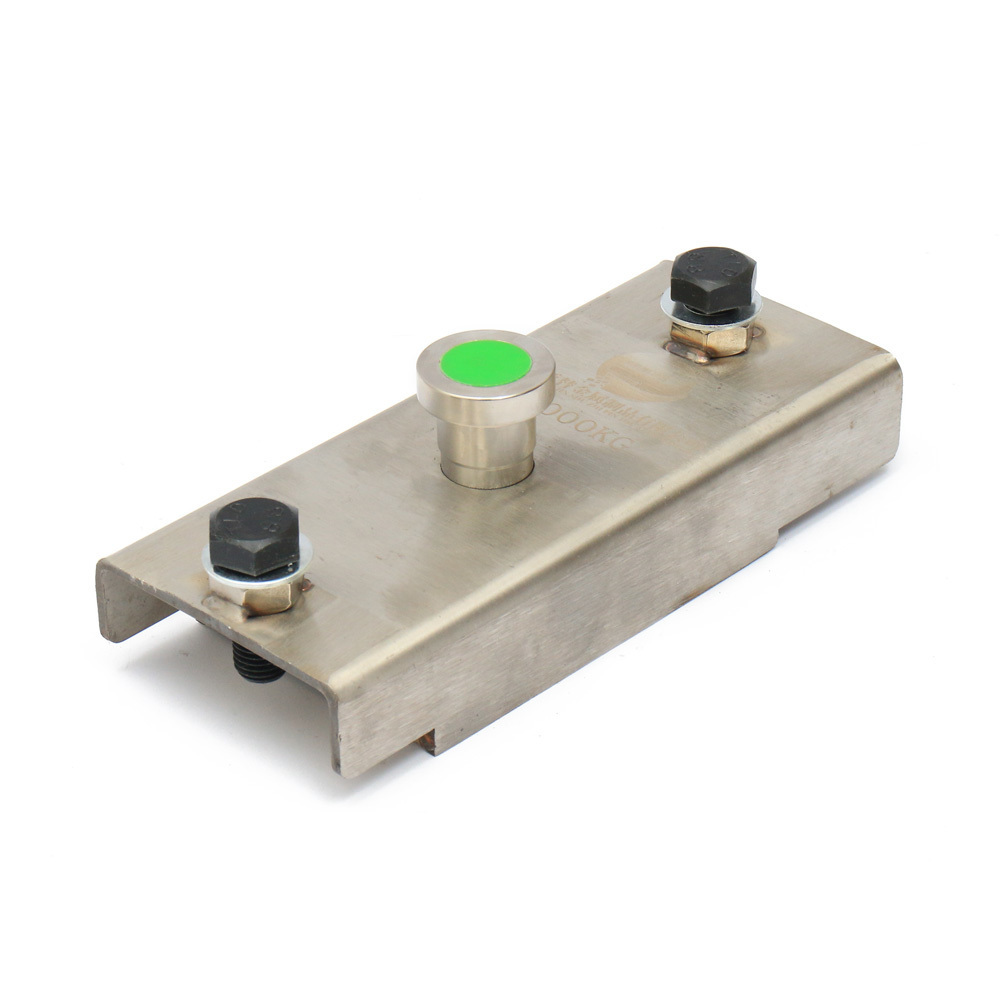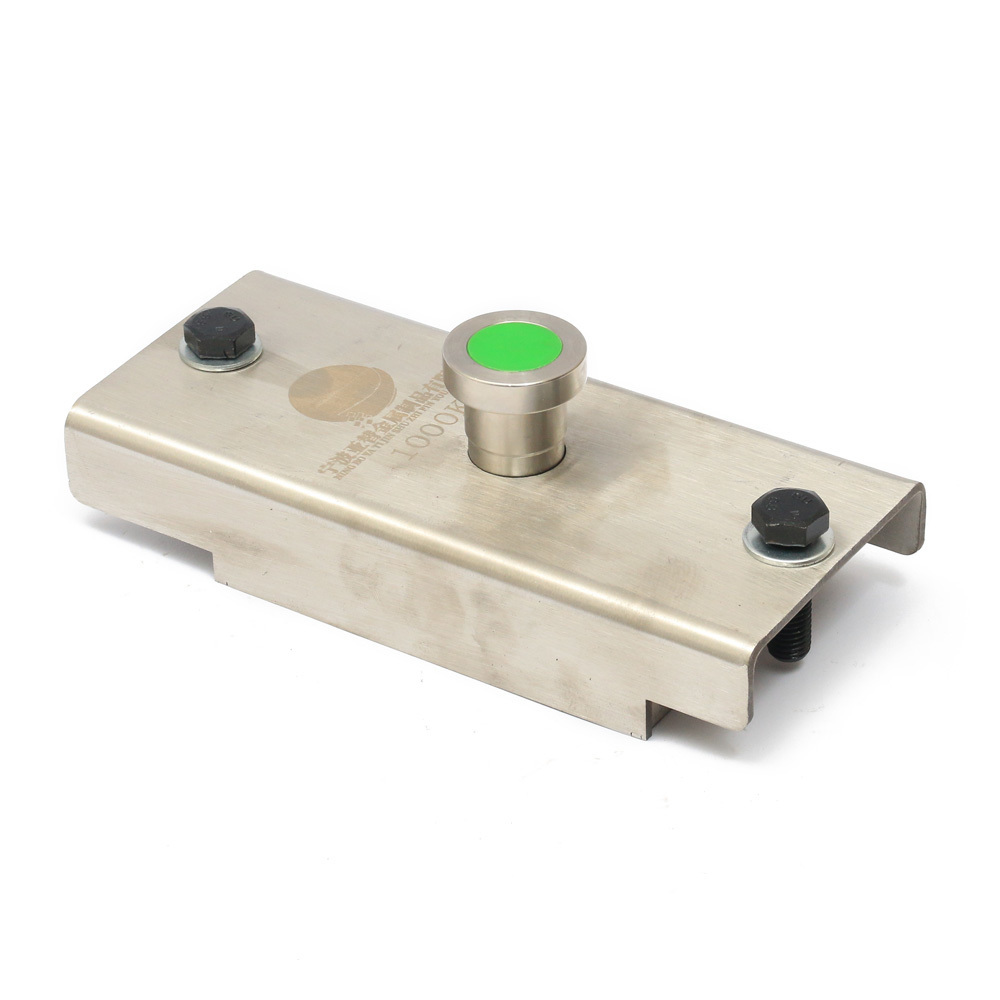What to Look for When Choosing Precast Magnets for Your Projects
What to Look for When Choosing Precast Magnets for Your Projects Precast magnets have become an integral part of various industrial projects, from construction to manufacturing and beyond. These tools help enhance productivity and precision in tasks that require strong and reliable magnetic forces. However, selecting the right precast magnet can be a daunting task, especially with the myriad of op
What to Look for When Choosing Precast Magnets for Your Projects
Precast magnets have become an integral part of various industrial projects, from construction to manufacturing and beyond. These tools help enhance productivity and precision in tasks that require strong and reliable magnetic forces. However, selecting the right precast magnet can be a daunting task, especially with the myriad of options available in the market. In this article, we will delve into the critical aspects you need to assess when choosing the best precast magnets for your projects, ensuring that you make an informed decision that aligns with your specific requirements.
Understanding Precast Magnets
Before diving into the selection process, it is essential to understand what precast magnets are and their role in various applications. Precast magnets are manufactured magnetic products designed for specific uses, such as lifting, holding, or aligning ferromagnetic materials. These magnets are often used in construction, manufacturing, and assembly lines, providing a strong, reliable force that can simplify tasks and improve efficiency.
Types of Precast Magnets
When it comes to precast magnets, there are several types available, each with unique features and applications. Understanding these different types can significantly impact your choice.
1. Permanent Magnets
Permanent magnets are made from materials that maintain their magnetic properties over time without the need for an external power source. They are widely used in applications where a constant magnetic field is required. Common materials used include neodymium, samarium-cobalt, and ferrite.
2. Electromagnets
Electromagnets produce a magnetic field through electric current. They offer the advantage of being able to control the strength of the magnetic field and can be turned on and off as needed. This makes them suitable for applications where versatility is essential.
3. Magnetic Assemblies
Magnetic assemblies combine multiple magnets into a single unit, often designed for specific applications. They can include features such as adjustable heights, handles, or integrated fixtures, making them versatile for various project needs.
Factors to Consider When Choosing Precast Magnets
Selecting the right precast magnet involves evaluating several factors to ensure optimal performance. Here are some key considerations:
1. Magnetic Strength
The magnetic strength required for your project will depend on the materials being handled and the specific tasks involved. It is essential to assess the weight and type of materials the magnet will be lifting or holding. Look for the magnet's pull force rating, which indicates how much weight it can safely hold.
2. Size and Shape
The size and shape of the magnet can influence its effectiveness. Consider the dimensions required for your project and ensure the magnet fits properly within the designated space. Irregular shapes may require custom solutions, so be prepared to discuss your needs with manufacturers.
3. Material Composition
The material of the magnet plays a crucial role in its performance and durability. For high-strength applications, neodymium magnets are often preferred due to their superior magnetic properties. However, they may not be suitable for high-temperature environments. Ferrite magnets, while less powerful, are more durable in such conditions.
4. Temperature Resistance
Different magnets have varying temperature tolerances. It’s crucial to know the operating environment of your project. If your application involves exposure to high temperatures, select magnets specifically designed to withstand such conditions to avoid demagnetization.
5. Environmental Conditions
Consider the environmental factors the precast magnets will face, such as humidity, corrosive substances, or dust. For outdoor applications or environments where exposure to moisture is likely, choose magnets with protective coatings or made from corrosion-resistant materials.
6. Application Specifics
Understanding the specifics of your application is vital. Whether you are looking for a magnet for assembly line work, lifting heavy materials, or aligning components, each use case may require different magnet specifications. Tailor your selection to the application for optimal efficiency.
7. Cost and Budget
Budget constraints are a reality for many projects. While it's tempting to opt for the cheapest option, consider the long-term value and performance of the magnet. Investing in high-quality precast magnets can save costs on replacements and downtime in the future.
8. Supplier Reputation and Support
Choosing a reputable supplier can significantly influence your project's success. Look for manufacturers or distributors with positive reviews and a track record of reliability. Additionally, ensure they offer support, guidance, and after-sales service should you encounter any issues.
Applications of Precast Magnets
Precast magnets find applications in various industries, each benefiting from the unique properties these tools provide. Here are some common uses:
1. Construction
In the construction industry, precast magnets are used for lifting heavy steel beams and precast concrete elements. Their strong magnetic force allows for efficient handling and positioning of materials.
2. Manufacturing
Manufacturers utilize precast magnets for assembly lines, where they can hold components in place during the assembly process. This ensures precision and reduces the risk of human error.
3. Automotive Industry
In automotive applications, magnets are used for various purposes, including holding parts during welding and aligning components during assembly.
4. Robotics and Automation
In automated processes, precast magnets are essential for moving and positioning items quickly and accurately. This is particularly important in industries that rely on high-speed production.
5. Arts and Crafts
Beyond industrial uses, precast magnets are also popular in arts and crafts. They can help artists and crafters create innovative designs and functional pieces, such as magnetic closures or displays.
Best Practices for Using Precast Magnets
To maximize the effectiveness of precast magnets, consider the following best practices:
1. Proper Installation
Ensure the magnet is installed correctly to achieve maximum efficiency. Incorrect positioning can lead to decreased performance and safety hazards.
2. Regular Maintenance
Conduct regular inspections of your magnets to ensure they remain in good condition. Check for signs of wear, corrosion, or damage, and replace them as needed to maintain performance.
3. Follow Manufacturer Guidelines
Always adhere to the manufacturer's guidelines and specifications for usage. This ensures you are using the magnets within their designed capabilities, reducing the risk of failure.
4. Employee Training
Train employees on the proper use and handling of precast magnets. This ensures that everyone understands how to operate the equipment safely and effectively.
5. Keep Safety in Mind
Safety should always be a priority when working with magnets. Ensure that workers are aware of the potential hazards associated with strong magnetic fields, especially in environments with electronic equipment.
FAQs About Precast Magnets
1. What is the difference between permanent and electromagnets?
Permanent magnets maintain their magnetic properties without an external power source, while electromagnets generate a magnetic field when an electric current passes through them.
2. How do I determine the right magnetic strength for my project?
Assess the weight and type of materials to be held or lifted. Look for the pull force rating on magnets to find one suitable for your project’s requirements.
3. Can precast magnets withstand high temperatures?
Not all magnets are designed for high temperatures. It’s crucial to choose magnets specifically rated for the temperature range of your application to prevent demagnetization.
4. Are there any safety concerns with using precast magnets?
Yes, strong magnets can pose risks, such as pinching injuries or affecting electronic devices. Proper training and safety measures should be implemented when using precast magnets.
5. How can I maintain my precast magnets?
Regularly inspect your magnets for wear and damage, and clean them as needed. Following the manufacturer's maintenance guidelines will help extend their lifespan.
Conclusion
Selecting the right precast magnets for your projects is crucial for ensuring efficiency, safety, and long-term performance. By understanding the different types of magnets, assessing the critical factors that influence your choice, and following best practices, you can make an informed decision that aligns with your specific project needs. Remember that the right precast magnets can significantly impact productivity and success in various applications, making it essential to invest the time and effort into choosing wisely.
MORE
05 Sep,2025
Reusable shuttering magnet customize
In construction, the erection and dismantling of formwork systems are crucial, and our reusable shuttering magnet is an ideal solution for optimizing this process.
DETAILS
05 Sep,2025
Top 5 Reasons to Use Strong Magnetic Boxes in Your Projects
Top 5 Reasons to Use Strong Magnetic Boxes in Your Projects
Table of Contents
1. Unmatched Security for Your Components
2. Versatility in Application
3. Cost-Efficiency and Sustainability
4. Simplified Organization and Storage
5. Enhanced Productivity and Workflow
FAQs
Conclusion
1. Unmatched Security for Your Components
Strong magnetic boxes provide an exce
DETAILS


